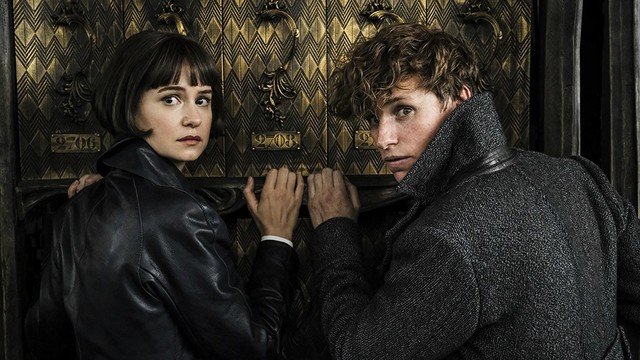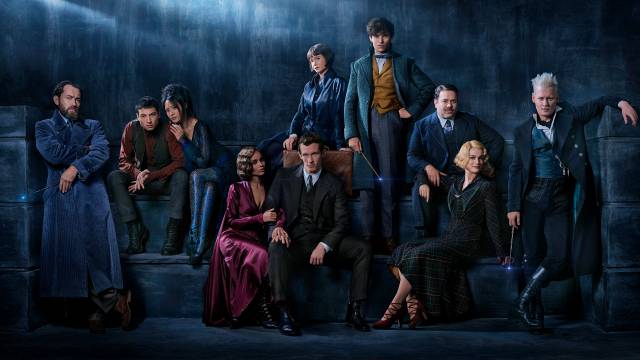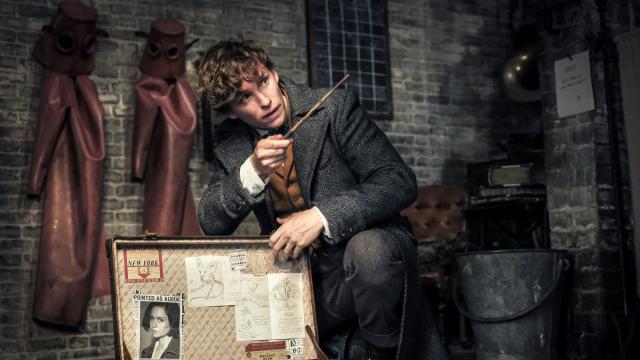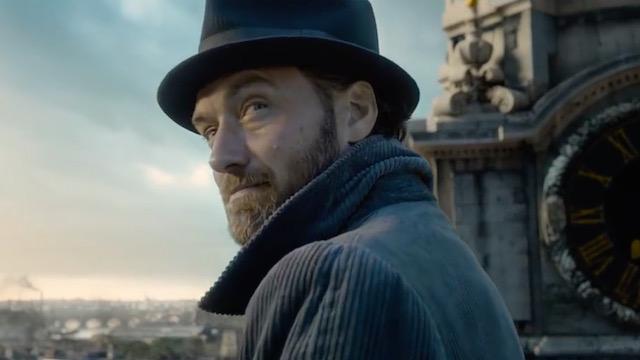Much like it’s predecessor, Fantastic Beasts: The Crimes of Grindelwald feels like an appetizer before the main course. It’s a movie that features a ton of set-up for very little pay-off. The film tries to appeal to the hardcore fan base by throwing the audience into the action without much context. At the same time, there’s so much that The Crimes of Grindelwald attempts to set up that it’s impossible for the film to tell a complete story. Even the first film managed to have a semblance of a story, something that this sequel can’t even manage to conjure.
In many ways, The Crimes of Grindelwald proves that even a juggernaut franchise like Harry Potter has its limits. It’s astounding that a franchise with such a wide appeal can be so limiting. Much like the Star Wars prequels, The Crimes of Grindelwald seems interested in shrinking the universe rather than expanding it. It’s a movie that is often confusing and uninteresting, offering no real depth of any kind. It also lacks any real conflict, and when there is it feels ham-fisted. There are a lot of things to be said about the film, but the fact that it feels so inconsequential is perhaps its most egregious sin.

It sounds a bit paradoxical, but The Crimes of Grindelwald manages to feel both confused and confusing. On one hand, the direction by franchise veteran David Yates feels like someone struggling to juggle twenty different flaming chainsaws. On the other, the screenplay by J.K Rowling feels like it keeps tossing more elements into the ring for Yates to handle. At a certain point, you’re going to drop the metaphorical ball because one film simply can’t handle all that the screenplay throws out there. Yates does his best to make the film dynamic in terms of the visual experience. But the result is a film that often feels misguided and even downright boring at times.
So how can a screenplay written by the franchise’s mastermind be so bad? There are multiple factors at play here, but the largest seems to be that this simply wasn’t really a story worth telling. The screenplay feels less of a concrete story, and more like a series of vignettes that are loosely strung together. This would be fine if the characters had any kind of growth, or if there was any sort of thematic resonance. But there isn’t. The Crimes of Grindelwald is a hollow shell of a plot that is waiting for the next installment to truly get the story going.

For a movie that boasts such an eclectic ensemble cast, you’d be remised to know that the talent in this movie is wasted – for the most part. Considering the lackluster material, most of the cast just does what they can — save for one. The easy standout in The Crimes of Grindelwald is Jude Law’s turn as young Dumbledore. The casting is pretty much perfect, and Law really knows how to do a spot-on Michael Gambon impression. Conversely, Johnny Depp’s performance as Grindelwald is as lifeless as could be. It feels like Depp was a bit of stunt casting in the first film, and The Crimes of Grindelwald only enhances this notion.
In terms of characterization, not one character is written in a convincing or even satisfactory manner. In this respect, the movie has a bit of an identity crisis because it doesn’t really know who its main character is. Newt remains mostly static throughout The Crimes of Grindelwald, and the movie’s eponymous character fails to drive any conflict whatsoever. The motivations often don’t make sense, but even worse is the fact that most of the film’s characters are mostly passive. It’s slightly ironic how the creator of a worldwide storytelling phenomenon couldn’t mange to tap into what made the franchise wok so well in the first place – an attention to convincing and believable characters.

Equally as troubling is the film’s portrayal of Dumbledore and Grindelwald’s backstory. Without getting into spoilers, the film pretty much curtails the… close relationship between the two characters. It’s really a moment that the movie should take more ownership over, instead of implying things that people already know. I’ll just go out there and say it – If this series is hinging it’s story on this mysterious relationship between Grindelwald and Dumbledore, then the movie needs to own the homosexual aspects of both characters. The series as a whole has failed to outright acknowledge the fact that Dumbledore is gay. But if the film didn’t try so hard to be so mysterious about their history, it might actually add a great deal of complexity to the plot and characters.
Then we have the big reveal at the end of the movie. The ending that The Crimes of Grindelwald concocts is both convoluted and slightly infuriating. The movie goes through great pains to try and connect these characters in a meaningful way. It’s a finale that proves the franchise has limited appeal in terms of scope. There’s something to be said for the way that The Crimes of Grindelwald misleads the audience into this conclusion. The whole movie is spent trying to unravel a mystery that shall not be named. But rather than use the pieces that were set up earlier in the film to make that connection, the movie pretty much abandons everything it had set up prior for a “shocking” ending that completely falls flat. The ending of the film is supposed to feel revelatory; instead it feels like an underwhelming finale that is hoping tide people over until the next installment. Ultimately, a certain connection is made that feels out of left field – almost as if it were on written on the day of shooting.

Despite all the work that the film does to hamper itself, The Crimes of Grindelwald is also a competently made film. In terms of effects and technical craftsmanship, the film is up to par with the rest of the franchise. This is certainly a more colorful film than it’s predecessor and the location change to Paris certainly offers a bit of visual variety to the series. With that said, there’s nothing really new or innovative going on in The Crimes of Grindelwald. Even though the marketing might imply more, there’s a serious lack of action in the film. Even compared to the first film, The Crimes of Grindelwald is a relatively quaint experience.
Fantastic Beasts: The Crimes of Grindelwald carries a great amount of heft in its title. As the second film in a planned franchise of five movies, The Crimes of Grindelwald had a great importance in proving the longevity of what are essentially spinoff movies. In other words, needed to justify its existence – something that the film utterly fails at doing. Unfortunately, the film also feels like a giant piece of fan fiction, which is ironic considering that Rowling wrote the script. It’s a screenplay that feels like it wants to be another book. In reality, the film gravitates more toward something like a greatest hits compilation than any kind of meaningful story. It’s unfortunate, because the story most certainly had the potential to be interesting. But the proof is in the pudding – Rowling is not a screenwriter and she will never be. As a result, The Crimes of Grindelwald ultimately fails to conjure that magic (sorry, I had to use at least one magic pun here) that made the Harry Potter movies so successful in the first place.
Rating: 1.5/5









